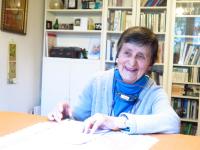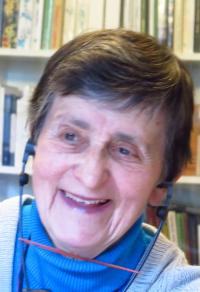I considered my father to be unbeatable

Stáhnout obrázek
Eva Stodolová was born on August 1, 1933 in Prague into the family of builder František Kolman. She lived with her parents and four siblings. She started her school attendance on September 1, 1939, the same day when World War Two broke out. She remembers the rationing system for food, blackouts, school vacation due to lack of coal for heating, classes held in pubs, the terror following Heydrich‘s assassination as well as the Prague Uprising. Her father was very active in the resistance movement - he was posting pamphlets in streets, hiding a transmitter in their home and communicating with London and the paratroopers. He was imprisoned two times during the war for his resistance activity. After the communist coup d‘état in 1948 he continued with the resistance and he spent fifteen years in prison for alleged preparation of a military uprising against the communist regime.


